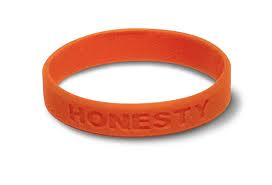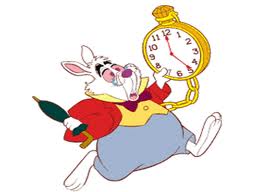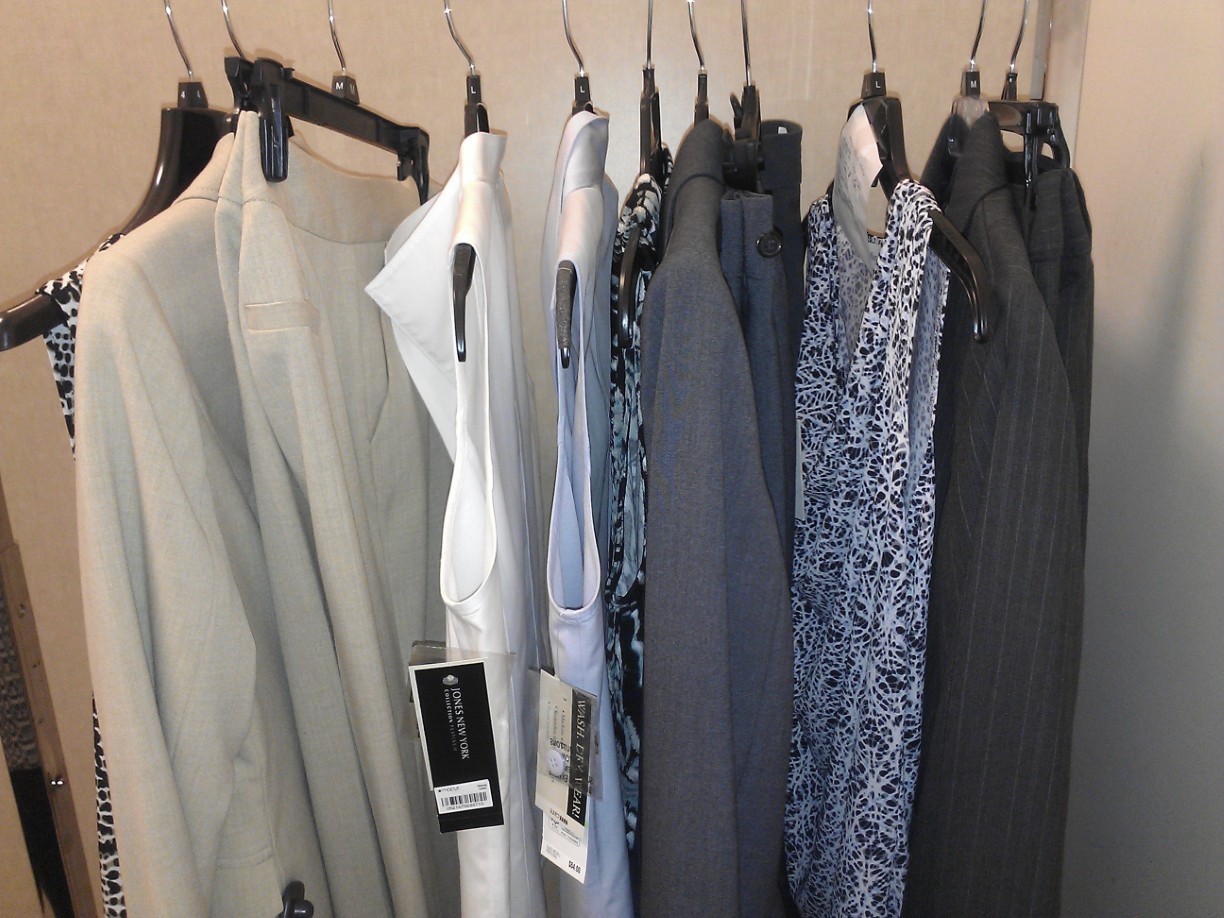 There’s an old saying that “silence speaks volumes.” It’s true in a way. Silence, in response to a question, sends two messages – either the unknown for the viewer or a lack of confidence or unprepared speaker. Silence can also in show power and intimidation in certain situations. Silence and facial expressions will send a message about the speaker’s confidence or lack of confidence. Being prepared, by doing a few exercises, before going into a meeting will help prevent silence when asked a question. I remember watching an interview with a former television anchor. The anchor stated he went through a series of voice exercises by talking out loud and quoting a few tongue twisters before the program started.
There’s an old saying that “silence speaks volumes.” It’s true in a way. Silence, in response to a question, sends two messages – either the unknown for the viewer or a lack of confidence or unprepared speaker. Silence can also in show power and intimidation in certain situations. Silence and facial expressions will send a message about the speaker’s confidence or lack of confidence. Being prepared, by doing a few exercises, before going into a meeting will help prevent silence when asked a question. I remember watching an interview with a former television anchor. The anchor stated he went through a series of voice exercises by talking out loud and quoting a few tongue twisters before the program started.
 Roger Love, the number one singing and speech coach for celebrities, recommends speaking in full sentences to help prevent the “ums” and “aws”. Pauses are a great tool to use to prevent filler words and ramblings. Engaging the audience will also help bring focus to the conversation and help pace speech. Racing to talk causes filler words. It is best to think before you speak, use a pause, or just say “give me a moment to gather my thoughts”. Strong statements build confidence with the audience. Avoid beginning sentences with the words “I think.” Instead, use the end results as a beginning. For example, instead of saying “I think we should use . . . “ say “We should use . . . “ Keeping these communication tips in mind will help build confidence for you and for the audience.
Roger Love, the number one singing and speech coach for celebrities, recommends speaking in full sentences to help prevent the “ums” and “aws”. Pauses are a great tool to use to prevent filler words and ramblings. Engaging the audience will also help bring focus to the conversation and help pace speech. Racing to talk causes filler words. It is best to think before you speak, use a pause, or just say “give me a moment to gather my thoughts”. Strong statements build confidence with the audience. Avoid beginning sentences with the words “I think.” Instead, use the end results as a beginning. For example, instead of saying “I think we should use . . . “ say “We should use . . . “ Keeping these communication tips in mind will help build confidence for you and for the audience.
Posted on 19 November 2019 Comments (0)
Tags: Anna's Posts, Attitude, Behaviors, Brand Impact, Business Social Etiquette, Career, Career Builders, Civility, Coaching, communication, Critical Thinking, Culture, Emtional Intelligence
 Honesty is the best policy—at the right time. Being honest at the wrong time usually leads to friction and hurt feelings. Working with people who feel honesty is the best policy – even in the middle of difficult situations – I have witnessed that it has not always helped their careers. Instead, most often being honest at the wrong time has hurt their chances of upward movement.
Honesty is the best policy—at the right time. Being honest at the wrong time usually leads to friction and hurt feelings. Working with people who feel honesty is the best policy – even in the middle of difficult situations – I have witnessed that it has not always helped their careers. Instead, most often being honest at the wrong time has hurt their chances of upward movement.
 The individuals who consistently are well liked and respected are the ones who always greet those around them with a smile. Recently, I attended a family function with a combination of two different families. Members of the families did not know each other. One of the couples arrived and did not say hello because they were in the midst of a disagreement with a member of the other family. What does that say about the first impression they made on people they did not know—or even on people who knew them well? It took the group nearly two days to warm up to each other. If the couple had walked in, said hello, and stopped for a few minutes to chat, everyone may have warmed up more quickly and been more comfortable.
The individuals who consistently are well liked and respected are the ones who always greet those around them with a smile. Recently, I attended a family function with a combination of two different families. Members of the families did not know each other. One of the couples arrived and did not say hello because they were in the midst of a disagreement with a member of the other family. What does that say about the first impression they made on people they did not know—or even on people who knew them well? It took the group nearly two days to warm up to each other. If the couple had walked in, said hello, and stopped for a few minutes to chat, everyone may have warmed up more quickly and been more comfortable.
 Arriving on time or early to a commitment you’ve made is a key element of being a true professional. Recently, an organization I was working with told me that one of their major complaints was about people who were always late—whether to work, meetings, or interviews. Some people think that being late indicates they have high demands on their time (which may be true). However, it shows a lack of respect for the individuals they keep waiting and the time those individuals are wasting while waiting. Being late discounts a person’s professionalism and any capital, they may have previously earned.
Arriving on time or early to a commitment you’ve made is a key element of being a true professional. Recently, an organization I was working with told me that one of their major complaints was about people who were always late—whether to work, meetings, or interviews. Some people think that being late indicates they have high demands on their time (which may be true). However, it shows a lack of respect for the individuals they keep waiting and the time those individuals are wasting while waiting. Being late discounts a person’s professionalism and any capital, they may have previously earned.
 The term “RSVP” is the abbreviation of the French phrase Réspondez s’il vous plait. It means “Please respond” – and it seems to be a dying habit. For years it was taken for granted that people would respond. Today, it’s a rarity to receive a response to an invitation. Non-responses are typical. Recently, I attended an event where the host had to track down invitees who had not responded. Why the rudeness? Not RSVPing shows a lack of etiquette and courtesy. It is good manners to respond within 24 hours of receiving the invite—even if just to say that you are not sure you are able to attend. After receiving the email invite regarding the recent event, I let the host know I might not be able to attend due to having a conflict with another event. The host was thrilled to receive the “maybe”. True professionals respond to their emails within 24 hours. One organization’s CEO has the firm rule that her staff members answer communications within 24 hours. It is a good rule for individuals and for businesses.
The term “RSVP” is the abbreviation of the French phrase Réspondez s’il vous plait. It means “Please respond” – and it seems to be a dying habit. For years it was taken for granted that people would respond. Today, it’s a rarity to receive a response to an invitation. Non-responses are typical. Recently, I attended an event where the host had to track down invitees who had not responded. Why the rudeness? Not RSVPing shows a lack of etiquette and courtesy. It is good manners to respond within 24 hours of receiving the invite—even if just to say that you are not sure you are able to attend. After receiving the email invite regarding the recent event, I let the host know I might not be able to attend due to having a conflict with another event. The host was thrilled to receive the “maybe”. True professionals respond to their emails within 24 hours. One organization’s CEO has the firm rule that her staff members answer communications within 24 hours. It is a good rule for individuals and for businesses.
 Body language, meaning how we stand, the way we walk in a room, and the pacing of our steps, all speak to our confidence. In my favorite movie, Star Trek, I noticed the difference between the way Jim Kirk (now played by Chris Pine) walked onto the bridge and the way Dr. Spock did it. Despite the difference in approaches, both characters radiated an air of quiet confidence.
Body language, meaning how we stand, the way we walk in a room, and the pacing of our steps, all speak to our confidence. In my favorite movie, Star Trek, I noticed the difference between the way Jim Kirk (now played by Chris Pine) walked onto the bridge and the way Dr. Spock did it. Despite the difference in approaches, both characters radiated an air of quiet confidence.
Watch the difference between first class and premier status boarding passengers the next time you people watch at the airport. Think about how you compare and who might you select as a role model.
 Megan Markle’s designer, Clare Waight Keller, head of Givenchy, designed Megan’s wedding dress. She was quoted in NYT Styles’ Q&A on the fact that clothes convey meaningful messages. Also, Oprah says clothes connect you to the world.
Megan Markle’s designer, Clare Waight Keller, head of Givenchy, designed Megan’s wedding dress. She was quoted in NYT Styles’ Q&A on the fact that clothes convey meaningful messages. Also, Oprah says clothes connect you to the world.
What one wears should make you feel good. Clothing messages a quick assessment for the audience about how approachable or even intimidating you are as well as whether or not you possess style. While Clare doesn’t feel this way, she confirms some think fashion and clothing as frivolous. I emphatically agree with Clare. Clothing sends a statement about all of us!
 The recent announcement of Lonnie G. Bunch III as the next Secretary of the Smithsonian Institution reminded me of a recent Chicago Tribune article where he was quoted saying politics can be a good thing.
The recent announcement of Lonnie G. Bunch III as the next Secretary of the Smithsonian Institution reminded me of a recent Chicago Tribune article where he was quoted saying politics can be a good thing.
Lonnie mentioned the way he could bring together all the folks to ensure the success of the Chicago History Museum. Successful leaders understand that everyone working together on goals pushes projects forward – long term.
 I found out later in life it how much it matters to like, and even be passionate about what one is involved in. It seems that earlier in life earning a living was the first goal…to pay bills and still be left with some freedom to live a life that matters.
I found out later in life it how much it matters to like, and even be passionate about what one is involved in. It seems that earlier in life earning a living was the first goal…to pay bills and still be left with some freedom to live a life that matters.
In my travels, I like and enjoy being around people that make a difference and demonstrate similar values to mine. It is especially important because when we hit a bump in the road, the passion and joy of the work will push us through it.
There are many books that focus on the importance of passion. Some simple exercises to discover what you may be passionate about include journaling and taking a pause to reflect about a moment that brings you a feeling of a brilliance. It is like when athletes say they were in “the zone”. It worked for me.
 There’s an old saying that “silence speaks volumes.” It’s true in a way. Silence, in response to a question, sends two messages – either the unknown for the viewer or a lack of confidence or unprepared speaker. Silence can also in show power and intimidation in certain situations. Silence and facial expressions will send a message about the speaker’s confidence or lack of confidence. Being prepared, by doing a few exercises, before going into a meeting will help prevent silence when asked a question. I remember watching an interview with a former television anchor. The anchor stated he went through a series of voice exercises by talking out loud and quoting a few tongue twisters before the program started.
There’s an old saying that “silence speaks volumes.” It’s true in a way. Silence, in response to a question, sends two messages – either the unknown for the viewer or a lack of confidence or unprepared speaker. Silence can also in show power and intimidation in certain situations. Silence and facial expressions will send a message about the speaker’s confidence or lack of confidence. Being prepared, by doing a few exercises, before going into a meeting will help prevent silence when asked a question. I remember watching an interview with a former television anchor. The anchor stated he went through a series of voice exercises by talking out loud and quoting a few tongue twisters before the program started.

 Roger Love, the number one singing and speech coach for celebrities, recommends speaking in full sentences to help prevent the “ums” and “aws”. Pauses are a great tool to use to prevent filler words and ramblings. Engaging the audience will also help bring focus to the conversation and help pace speech. Racing to talk causes filler words. It is best to think before you speak, use a pause, or just say “give me a moment to gather my thoughts”. Strong statements build confidence with the audience. Avoid beginning sentences with the words “I think.” Instead, use the end results as a beginning. For example, instead of saying “I think we should use . . . “ say “We should use . . . “ Keeping these communication tips in mind will help build confidence for you and for the audience.
Roger Love, the number one singing and speech coach for celebrities, recommends speaking in full sentences to help prevent the “ums” and “aws”. Pauses are a great tool to use to prevent filler words and ramblings. Engaging the audience will also help bring focus to the conversation and help pace speech. Racing to talk causes filler words. It is best to think before you speak, use a pause, or just say “give me a moment to gather my thoughts”. Strong statements build confidence with the audience. Avoid beginning sentences with the words “I think.” Instead, use the end results as a beginning. For example, instead of saying “I think we should use . . . “ say “We should use . . . “ Keeping these communication tips in mind will help build confidence for you and for the audience. Honesty is the best policy—at the right time. Being honest at the wrong time usually leads to friction and hurt feelings. Working with people who feel honesty is the best policy – even in the middle of difficult situations – I have witnessed that it has not always helped their careers. Instead, most often being honest at the wrong time has hurt their chances of upward movement.
Honesty is the best policy—at the right time. Being honest at the wrong time usually leads to friction and hurt feelings. Working with people who feel honesty is the best policy – even in the middle of difficult situations – I have witnessed that it has not always helped their careers. Instead, most often being honest at the wrong time has hurt their chances of upward movement. The individuals who consistently are well liked and respected are the ones who always greet those around them with a smile. Recently, I attended a family function with a combination of two different families. Members of the families did not know each other. One of the couples arrived and did not say hello because they were in the midst of a disagreement with a member of the other family. What does that say about the first impression they made on people they did not know—or even on people who knew them well? It took the group nearly two days to warm up to each other. If the couple had walked in, said hello, and stopped for a few minutes to chat, everyone may have warmed up more quickly and been more comfortable.
The individuals who consistently are well liked and respected are the ones who always greet those around them with a smile. Recently, I attended a family function with a combination of two different families. Members of the families did not know each other. One of the couples arrived and did not say hello because they were in the midst of a disagreement with a member of the other family. What does that say about the first impression they made on people they did not know—or even on people who knew them well? It took the group nearly two days to warm up to each other. If the couple had walked in, said hello, and stopped for a few minutes to chat, everyone may have warmed up more quickly and been more comfortable. Arriving on time or early to a commitment you’ve made is a key element of being a true professional. Recently, an organization I was working with told me that one of their major complaints was about people who were always late—whether to work, meetings, or interviews. Some people think that being late indicates they have high demands on their time (which may be true). However, it shows a lack of respect for the individuals they keep waiting and the time those individuals are wasting while waiting. Being late discounts a person’s professionalism and any capital, they may have previously earned.
Arriving on time or early to a commitment you’ve made is a key element of being a true professional. Recently, an organization I was working with told me that one of their major complaints was about people who were always late—whether to work, meetings, or interviews. Some people think that being late indicates they have high demands on their time (which may be true). However, it shows a lack of respect for the individuals they keep waiting and the time those individuals are wasting while waiting. Being late discounts a person’s professionalism and any capital, they may have previously earned. Body language, meaning how we stand, the way we walk in a room, and the pacing of our steps, all speak to our confidence. In my favorite movie, Star Trek, I noticed the difference between the way Jim Kirk (now played by Chris Pine) walked onto the bridge and the way Dr. Spock did it. Despite the difference in approaches, both characters radiated an air of quiet confidence.
Body language, meaning how we stand, the way we walk in a room, and the pacing of our steps, all speak to our confidence. In my favorite movie, Star Trek, I noticed the difference between the way Jim Kirk (now played by Chris Pine) walked onto the bridge and the way Dr. Spock did it. Despite the difference in approaches, both characters radiated an air of quiet confidence. Megan Markle’s designer, Clare Waight Keller, head of Givenchy, designed Megan’s wedding dress. She was quoted in NYT Styles’ Q&A on the fact that clothes convey meaningful messages. Also, Oprah says clothes connect you to the world.
Megan Markle’s designer, Clare Waight Keller, head of Givenchy, designed Megan’s wedding dress. She was quoted in NYT Styles’ Q&A on the fact that clothes convey meaningful messages. Also, Oprah says clothes connect you to the world. The recent announcement of Lonnie G. Bunch III as the next Secretary of the Smithsonian Institution reminded me of a recent Chicago Tribune article where he was quoted saying politics can be a good thing.
The recent announcement of Lonnie G. Bunch III as the next Secretary of the Smithsonian Institution reminded me of a recent Chicago Tribune article where he was quoted saying politics can be a good thing. I found out later in life it how much it matters to like, and even be passionate about what one is involved in. It seems that earlier in life earning a living was the first goal…to pay bills and still be left with some freedom to live a life that matters.
I found out later in life it how much it matters to like, and even be passionate about what one is involved in. It seems that earlier in life earning a living was the first goal…to pay bills and still be left with some freedom to live a life that matters.

